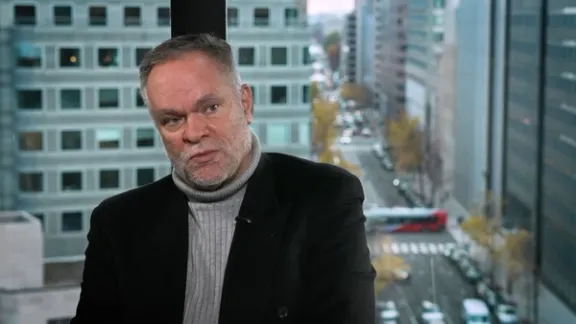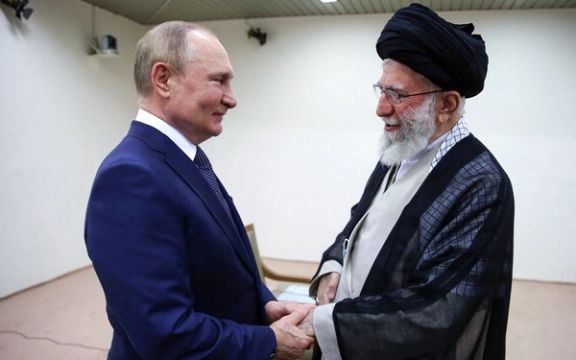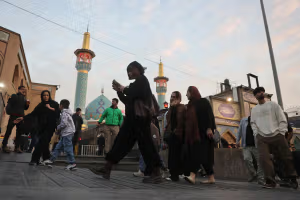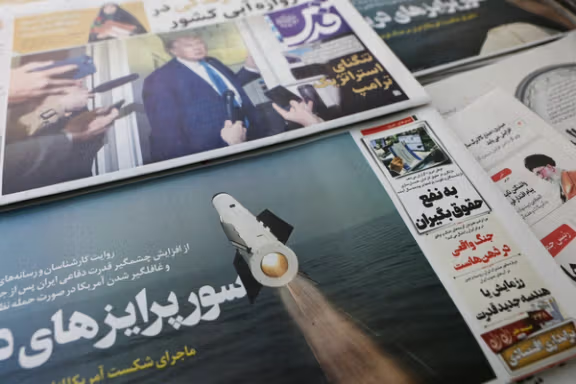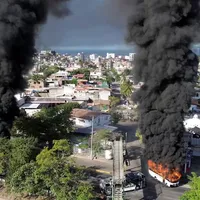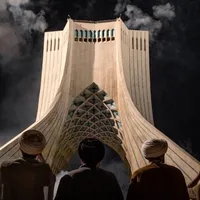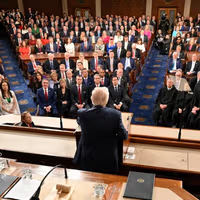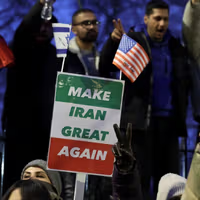Few understand the stakes better than former CIA case officer Reuel Marc Gerecht, a man who once risked his life to enter Iran on his own.
After four decades of watching the Islamic Republic from every angle - as a CIA officer, a historian and someone who smuggled himself into Iran just to see what it was really like - Gerecht’s conclusion about Iran today is stark.
“These people are not moving to Paris,” he said. “They are going down swinging.”
Tehran, he says, is fundamentally unstable, badly shaken by a US-Israeli war in June and deeply suspicious of intelligence penetration by its enemies.
“It has spiritually and perhaps bureaucratically dealt a death blow to the Supreme Leader,” he said, asserting that the stature of veteran theocrat Ali Khamenei who since the conflict has emerged in public more rarely is on the wane.
“I am very doubtful that the eighty-six-year-old gentleman is actually running the government now," he said. "His clones are. He has been effective replicating himself inside the system.”
The surprise Israeli air campaign in June appeared to expose broad intelligence failures and killed hundreds of military personnel and civilians.
Assassinations of top commanders need not have required many Israeli personnel or agents, said Gerecht, a former so-called Iranian targets officer who identified and recruiting Iranians to work for US intelligence.
“The number wouldn’t be that large,” he said.
Young men
Still, the impasse over Iran's disputed nuclear program festers despite US President Donald Trump's assertion that US attacks on nuclear facilities had "obliterated" it.
Khamenei and other top leaders have ruled out US conditions to restart talks even as US and international sanctions on Iran have deepened, driving up costs of living and undermining popular support for authorities.
“The regime cannot make a full recovery and they know that,” he said. “They know how many people dislike them intensely.” Yet as long as Tehran maintains “X number of young men willing to commit violence” on its behalf, it survives.
The United States, he said, is unlikely to seek Tehran's downfall by force.
“The unexpected could happen,” he said. “It is the unexpected that really scares them.” But he sees no serious external push for regime change. “Trump certainly does not have a regime change strategy,” he said. “The bureaucracies are always opposed to that.”
Given US reluctance to get embroiled in another Mideast adventure, any change to the nearly fifty-year-old Islamic system would come from within.
The "Woman, Life, Freedom" protest movement sparked by the death of a young woman, Mahsa Amini, in 2022 was quashed with deadly force by security forces.
“Women can’t bring the Islamic Republic down," Gerecht said. "It has to be young men.”
Going rogue
It was the early 1990s and Iran was still emerging from revolution and a devastating war with Iraq when Gerecht made a decision few would dare.
Driven by a relentless desire to understand the country from within, he left the agency and paid a truck driver to hide him in a cramped storage compartment as they crossed the border from Turkey into Iran.
“They (the CIA) didn’t allow me to go inside Iran,” he said. “So I went rogue.”
In his view, the governing system has lost legitimacy but not its capacity for violence, and real change will only come from fractures among the men who enforce the clerical establishment, not from foreign pressure or peaceful transition.
Gerecht recalled an anecdote far from Iran. At a party in Moscow years ago, he asked a group of former and current KGB officers what had disturbed them most about their service. “They all said they got tired of lying to their children,” he recalled.
He wonders whether one day those inside Iran’s own security establishment might face that same reckoning.
“If that type of scenario is possible,” he said, “then you could conceivably have real change in the Islamic Republic.”
Until then, he sees Iran as a country full of contradictions and a clerical establishment determined to maintain its grip by force.

